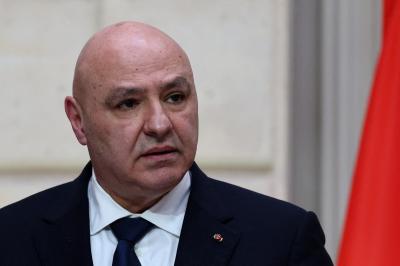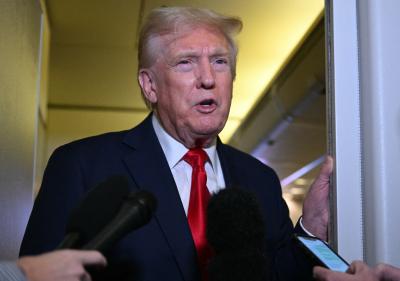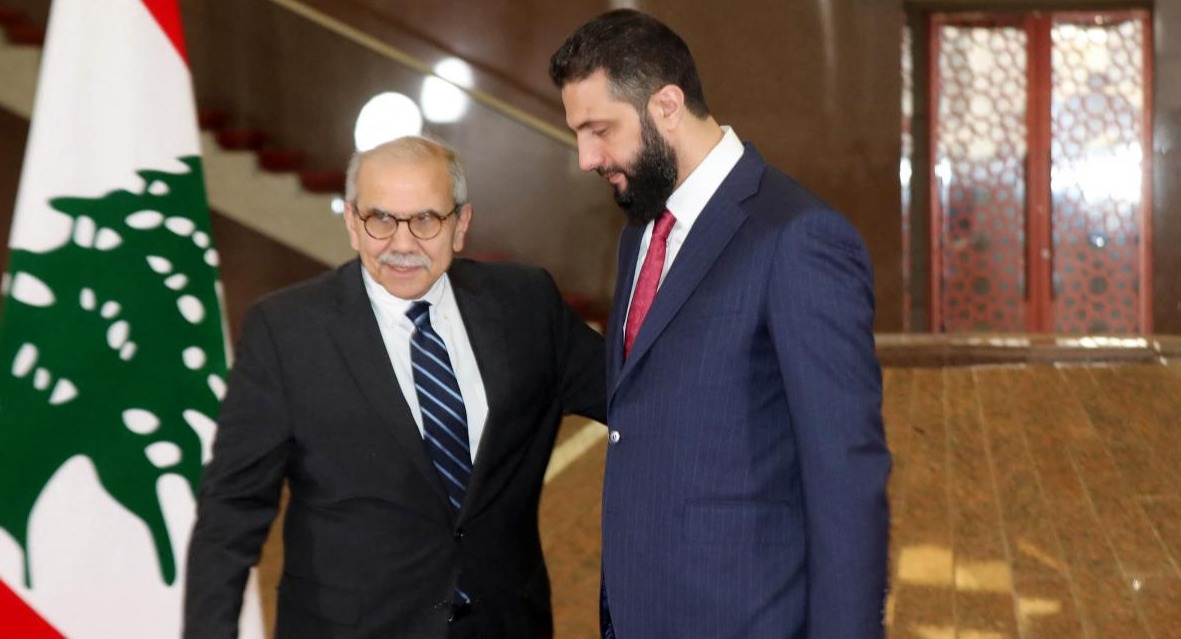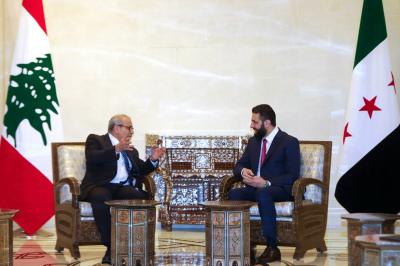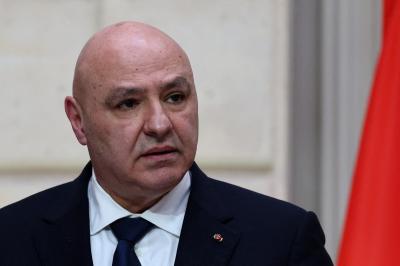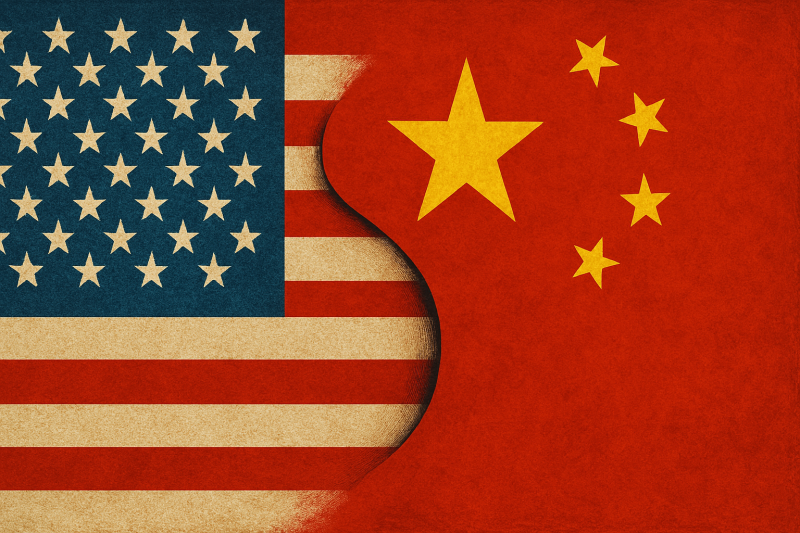For over half a century, the Assad family ruled Syria through a military dictatorship cloaked in Baathist slogans like “One Arab Nation with an Eternal Mission” and “Unity, Freedom, Socialism.” It was the reign of a single man who crushed every trace of freedom and instilled a culture of terror under the guise of socialism. Under Hafez al-Assad, “99% democracy” became the norm—through staged referendums, starting in 1971, where he effectively ran unopposed. During his five terms, the lowest percentage he ever scored was 99.2%. That legacy of sham elections continued under his son Bashar until the regime finally collapsed in 2024, revealing the deeply authoritarian nature of the system.
With Bashar al-Assad fleeing to Moscow and Ahmad al-Sharaa taking over the presidency at the Qasr al-Muhajireen following a 13-year civil war that erupted from the peaceful 2011 uprising, Syria has turned a pivotal page in its history—one where the identity of the state had become so conflated with its ruler that the term “Assad’s Syria” became commonplace.
Lebanon, too, is closing a painful chapter shaped by Syria’s military and political dominance, which began under the pretense of deploying troops as “Palestinian liberation forces” at the start of Lebanon’s civil war in 1975. As Hafez al-Assad himself later admitted in a 1976 speech at Damascus University, Syrian forces entered Lebanon without warning or permission. This military occupation evolved into a total grip on Lebanon’s political, economic, and social structures, especially after 1990, turning Syria into a shadow government that influenced even the minutiae of Lebanese daily life.
Decades of interference left behind explosive unresolved issues—rooted not only in power consolidation or personal ambition, but in an ideological worldview. Like his father, Bashar al-Assad viewed Lebanon as a “historical mistake,” “a soft flank,” “a lost province separated by the Sykes-Picot Agreement,” “a hotbed of coups,” and “Syria’s 15th governorate.”
Now, amid sweeping changes across the region—especially post-October 7—the relationship between Lebanon and Syria is at a historic crossroads. There’s a rare opportunity to transition from an era of subjugation, interference, and dependency to one of equality and mutual respect. President Ahmad al-Sharaa has repeatedly declared:
“The new Syria does not interfere in the affairs of its neighbors but seeks relationships based on mutual respect and national sovereignty… The past is behind us, and we are opening a new chapter with Lebanon, Iraq, and Turkey. Our relationship with Lebanon will be founded on transparency and sovereignty. The interventions of the past no longer reflect the will of the Syrian people.”
In that spirit, Lebanese Prime Minister Nawaf Salam led a high-level delegation to Damascus on April 14, 2025—the first such official visit since both countries gained independence in the 1940s. The delegation included Foreign Minister Youssef Raji, Defense Minister Michel Menassa, and Interior Minister Ahmad Hajjar. The visit is intended to lay the groundwork for a balanced relationship and to begin clearing the debris left by decades of Assad-era policies that harmed both nations.
“This visit is a gateway to a new chapter in bilateral relations, one built on mutual respect, restored trust, and good neighborly ties,” Salam said. “Syria’s decisions belong to the Syrians, and Lebanon’s to the Lebanese.”
All sensitive issues were placed on the table—signaling an end to the era of taboos:
- Border demarcation (land and sea), control, and closure of illegal crossings
- Dismantling smuggling networks
- Reexamining the fate of the Lebanese-Syrian Higher Council and reviewing treaties from the Brotherhood, Cooperation, and Coordination Agreement
- Discussions on fuel and gas transit, cross-border trade
- Investigations into Lebanese citizens forcibly disappeared in Syrian prisons
- Potential extradition of fugitives convicted in Lebanon, including those responsible for assassinating President Bashir Gemayel, Kamal Jumblatt, and the perpetrators of the 2013 Tripoli mosque bombings
- Addressing the politically motivated detentions of Syrians in Lebanon and the fate of former regime officers who fled to Syria
Naturally, the issue of Syrian refugees was central to the talks. Lebanon is banking on swift action—especially as Deputy Prime Minister Tarek Mitri has proposed a repatriation plan for 400,000 refugees.
Gone are the canned responses of the Assad era—especially regarding the detainees in Syrian prisons. Back in 1998, after the release of 121 Lebanese prisoners, then-Vice President Farouk al-Sharaa claimed from the Presidential Palace: “We no longer hold any Lebanese detainees; those released were proven innocent of collaborating with Israel.” That position was relayed to the late Patriarch Mar Nasrallah Boutros Sfeir by Judge Adnan Addoum and General Jamil Sayyed. Even under Bashar, a goodwill gesture in 2000 saw just 45 Lebanese released.
Now, a practical step: a ministerial committee will be formed—including the foreign, defense, interior, and justice ministries—to follow up on all matters of mutual concern. Further issues will be handled by the relevant ministers.
This meeting takes place at a time when both the Syrian regime and the new Lebanese administration are confronting the remnants of Assad's legacy. Among them: are the regime’s historical resistance to border demarcation, its manipulation of refugee return for political leverage, and the use of displaced populations as a geopolitical tool.
Will this convergence of interests finally clear away the Assad-era debris? Will both sides capitalize on Saudi Arabia’s mediation to restore ties and reintegrate into the Arab fold—especially as Tehran’s influence wanes and Ankara’s ambitions are being checked?
Signs are encouraging. In a recent meeting in Jeddah, the Saudi-brokered talks between Lebanon and Syria’s defense ministers—held after armed clashes in eastern Bekaa—demonstrated a clear intent to enhance joint security and preserve regional stability.
 French
French



